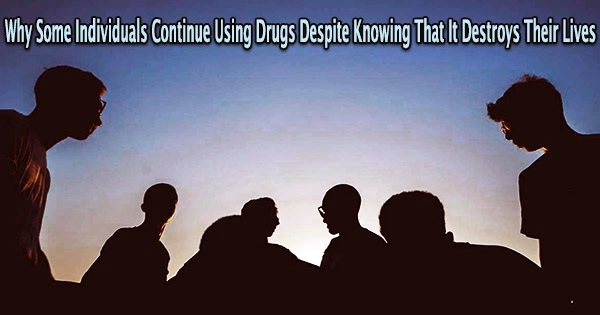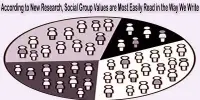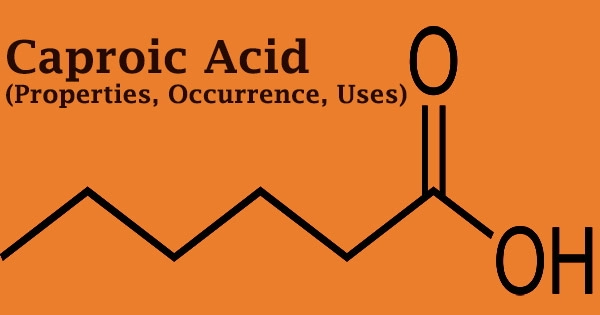If you’re like the majority of people, you’ve been affected by substance use problems in some way. You might have known someone who has battled drug addiction in their family, circle of friends, or other relationships. As a result, you could also be familiar with the considerable adverse effects this can have, including the loss of one’s profession, health, and social connections. Researchers have made significant attempts to understand what encourages and maintains substance use despite these unfavorable results due to its destructive impact.
In order to achieve this, Laureate Institute for Brain Research researchers have discovered that there may be significant variations in how people with substance use problems process unfavorable results.
When a decision has different results than we anticipated, we have the chance to grow. We can specifically revise our assumptions about what would occur if we made the same choice again.
For example, try to think of a recent choice you made where the outcome was worse than you expected. Do you think you’ll make that same choice again? Or do you think you’ll decide differently the next time you’re in a similar situation?
Reinforcement learning refers to the process of altering our behavior when a result is better or worse than anticipated. This naturally causes us to repeat the same action more frequently when results are better than expected and less frequently when results are worse than anticipated.
Importantly, this learning process can be largely automatic; it does not typically require any mental effort. For example, if an action leads to a positive outcome several times, you may simply feel a stronger desire to make that decision again. In reality, resisting the want to make the same decision frequently requires a lot of mental work. Similar to this, if you consistently experience bad results, you could find that you have stronger and stronger inclinations to stop doing the things that led to them.
However, these mechanisms might behave otherwise in people with substance use disorders, such as cocaine, methamphetamine, or opiate addiction. In particular, drug users in our experiments demonstrated a slower rate of learning from unfavorable outcomes than did healthy people (referred to as a slower “learning rate”). In contrast, they showed a faster learning rate than healthy individuals when outcomes were positive.
In scientific studies, such as those performed in our lab, differences in learning rates are often measured using gambling games. For example, imagine that I showed you three slot machines. Then I told you that each time you choose a slot machine, you will either win or lose $5. You can choose between the three slot machines 20 times in a row, but you do not know which one will win the most often.
So, you have to learn by trial and error. Now, pretend you played the first slot machine four times in a row and that it led to a win each time, but when you played it the next two times it led to a loss. What do you do?
You have two options. First, you could keep choosing the same machine. After all, the two recent losses might have just been due to chance. The device first appeared to be good, and it might still be the finest overall. The alternative would be to decide that this computer is most likely not the greatest and change to another one.
In other words, you quickly changed your behavior after just a few poor experiences if you chose to transfer to a new machine after the two losses, which would indicate that you had a quick rate of learning from unfavorable results.
On the other hand, even if they kept losing, some people might pick the same option five or six more times. This would imply a slow rate of learning from unsuccessful outcomes.
We played a game with numerous people who had substance use issues in our lab, and despite their repeated failures, they tended to select the same option more frequently. In contrast, healthy participants switched machines more frequently after fewer losses. Those with substance use disorders also showed more randomness in their choices than the healthy participants (e.g., switching away from a winning machine for no reason).
These new findings might make it easier for us to comprehend why some people can develop substance use disorders so easily and why it can be so difficult for them to stop taking drugs once they’ve started. For instance, consuming an addictive substance might be quite satisfying at initially, which may cause us to want to continue using it. However, these substances also eventually result in a number of detrimental life outcomes, such as losing one’s friends, family, or job.
You might think these negative consequences would lead a person to stop using drugs, but for some, it simply doesn’t. This can seem strange, but it makes sense if people learn slowly from bad things that happen to them. And even if a person experiences success in treatment, increased randomness in decision-making may be the reason they still choose to use drugs.
How might this information be helpful? First, we might try to find ways in treatment to increase a person’s learning rate from negative outcomes. Future research might, for instance, focus on teaching addicts in recovery to consider the negative effects of their decisions to use more carefully. They could also devise strategies to make sure drug users comprehend that these unfavorable effects were brought on by their use of drugs and do not attribute blame elsewhere.
The ability to identify who will have more trouble receiving therapy and who may respond better to specific treatments than others can also be determined by assessing learning rates. Improvements following therapy in one of our experiments suggested some potential links to variations in learning rates. A year later, those who had more symptoms still exhibited increased choice randomness.
It is encouraging to believe that these metrics might be able to provide some valuable information about how much a certain treatment will benefit a particular patient, but we still need to do many more studies to validate these associations and look at different treatments.
It’s important to be clear that there’s a lot we still don’t know. For example, it’s possible that substance use causes these changes in learning rates. However, it’s also plausible that people exhibit these differences in learning rates in advance, making them more susceptible to addiction once they start using.
Furthermore, while our findings might imply that increasing learning rates from unfavorable outcomes could be beneficial, this is not a given. For instance, slower learning from unfavorable outcomes could be advantageous in therapy. This is due to the fact that the rehabilitation process can be difficult, and those who learn more slowly from bad experiences may find it easier to make the decision to persevere.
It’s also important to stress that our work is a only small part of a much larger set of studies carried out by other researchers, who have uncovered related patterns of unhealthy decision-making in addiction (if you’d like to read a scientific article summarizing these other studies, see).
These findings provide some new insights into the processes that may be involved in substance use disorders and why it can be so challenging for some people to recover from them, despite the unsolved questions. They also indicate that it would be beneficial to focus on these variations within ourselves.
For example, if something has worked well for you for a long time, but then a couple of bad outcomes occur, do you think you might change your mind too quickly? Or do you instead tend to stay in bad situations too long before deciding to try something different?
Being aware of these patterns can help us better understand who we are and, if necessary, reveal areas where we could make improvements. They could also increase our compassion and sympathy for persons with substance abuse issues.
















